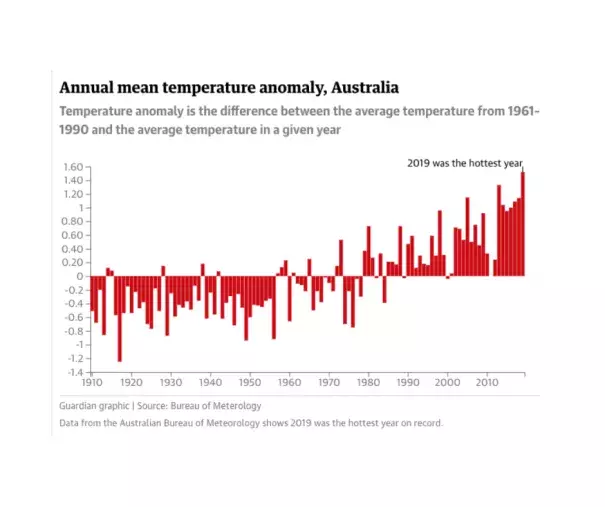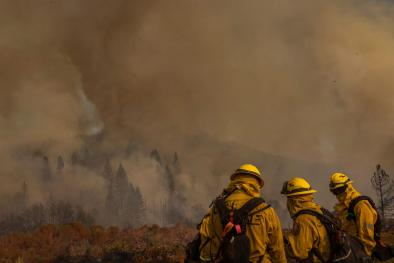Australia's summer of 2019-20 country's second hottest on record

Climate Signals Summary: Climate change is increasing the frequency and intensity of extreme heat and heat waves, and leading to more overall heat records. In Australia, these hot temperatures are one factor that fueled the devastating 2019-2020 bushfire season.
Article Excerpt: The summer just finished was Australia’s second-hottest on record, with the temperature 1.88C above average, the Bureau of Meteorology says.
The only hotter summer on record was the previous year, which was 2.14C above average. Temperatures this summer were above average across almost the entire country.
Dr Blair Trewin, a senior climatologist with the bureau, said the hot summer, which was marked by the unprecedented bushfire crisis that devastated communities and wildlife in much of the country, was part of a long-term warming trend that had seen the country warm by 1.4C since 1910. Most of that warming has come since 1950.
Trewin said: “That tells us the baseline is higher, and with that you have a higher risk of high extremes like we have seen in the past two summers. Our baseline expectation now is for warmer than average summers, and other seasons more generally.”
...
Karl Braganza, the head of climate monitoring, was asked how much Australia was projected to warm, given a scientific analysis involving the World Meteorological Organisation last year found average global temperatures were expected to rise between 2.9C and 3.4C by 2100 under commitments put forward by national governments as part of the Paris agreement.
Braganza said the increase in Australia would be expected to be “closer to 4C” heating than the global average under that scenario, assuming countries did not do more than promised in Paris.
...
That exceptional heat included 17 and 18 December, when on two consecutive days Australia recorded its hottest day on record. The national average temperature on 18 December was 41.9C – one whole degree hotter than the previous day.
December 2019 also delivered the worst conditions for bushfires on a record going back to 1950.
Several records were broken for warmest summer nights in NSW, Victoria and Queensland. On 1 February, nighttime temperatures in the rural area of Condobolin, west of Dubbo, NSW, did not drop below 34.7C.
...
While the bureau’s report does not cover ocean temperatures, the hot summer has also seen the build-up of heat stress on the Great Barrier Reef, with scientists fearing a third mass coral bleaching event in the past five years if temperatures don’t fall in the next few days.
Related Content



